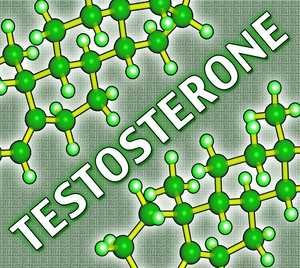Video Link: https://vimeo.com/291312923
Video Download: Click Here To Download Video
Video Stream: Click Here To Stream Video
Video Link: https://vimeo.com/291313011
Video Download: Click Here To Download Video
Video Stream: Click Here To Stream Video
Are you still uncertain about trying Testosterone Replacement Therapy (TRT)?
Do you think you might have a genuine clinical and medical necessity for Testosterone replenishment with the intention of treating hypogonadism, Low-T, hypotestosteronemia, andropause, or androgen deficiency syndrome?
Have you talked to a friend who has experienced the miracles that TRT can deliver? But at the same time, you are somewhat concerned about the possible adverse side effects?
But at the same time, you are somewhat concerned about the possible adverse side effects?
 Good. You should be concerned about the benefits and side effects of TRT.
Good. You should be concerned about the benefits and side effects of TRT.
Even if properly administered, Testosterone treatments can potentially be risky.
It is a potent hormone just like growth hormone, and specific, precise medical protocols need to be followed to avoid side effects.
In short, this is nothing to “try at home” by yourself. TRT requires a protocol prescribed by a physician specialist if you want to do a hormone program properly.
Our physicians are experts in tailoring testosterone programs that work to replenish deficiency in men or to stimulate the natural production of T within the body.
Both topics are essential knowledge factors in your decision to undergo a Testosterone therapy program.
By contacting us, we will provide you with the most professional, cutting-edge care available by testosterone specialists with over ten years of experience prescribing this vital androgen hormone.
We have the experience, the knowledge, and the expertise to make sure you will enjoy the benefits of TRT without the possible side effects.
Let's take a look at a few of the benefits TRT can deliver...
Prevention of Cardiovascular Disease
Research from Boston University School of Medicine (BUSM) implies that testosterone treatment in men with low testosterone levels (“Low-T”) restores standard lipid profiles and may reduce the risk of cardiovascular disease.
These findings currently appear in the International Journal of Clinical Practice.
The dreadful Metabolic Syndrome (MetS) is associated with an increased risk of cardiovascular disease and diabetes mellitus.
There is a proven link between MetS and testosterone deficiency.
Hypogonadal (Low-T) men are much more likely to suffer from metabolic syndrome, which is characterized by dyslipidemia (an abnormal amount of lipids, e.g., cholesterol or fat in the blood), insulin resistance, diabetes, and hypertension.
Not surprisingly, obese and overweight men quite often suffer from testosterone deficiency.
Obesity is a downward spiral because belly fat often tends to cause estrogen to increase out of control in some men.
Testosterone and Cholesterol Research
In this observational study, BUSM researchers investigated the effects of testosterone treatment in 255 hypogonadal men between the ages of 33-69 and 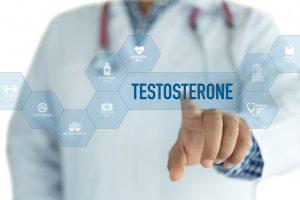 followed them for five years.
followed them for five years.
They discovered that men treated with TRT experienced a gradual decline in their total cholesterol, low-density lipoprotein cholesterol (LDL/bad cholesterol), triglycerides, and increased high-density lipoprotein (HDL/(good cholesterol).
Testosterone and Hypertension
“In addition to improving their cholesterol levels, we found that the testosterone treatment resulted in marked reductions in systolic and diastolic blood pressure as well, suggesting amelioration of hypertension,” explained lead author Abdulmaged M. Traish, MBA, Ph.D., professor of biochemistry and urology as well as Research Director of the Institute of Sexual Medicine at BUSM.
Testosterone May Improve Insulin Sensitivity
Dr. Traish concluded that this treatment also lowered fasting blood glucose and hemoglobin A1c, a surrogate marker of hyperglycemia, suggesting that testosterone treatment may improve insulin sensitivity and hyperglycemic (high blood sugar) control.
It also slashed levels of inflammatory biomarkers such as C-reactive protein (CRP) and improved signs of liver dysfunction such as alanine aminotransferase and aspartate aminotransferase, suggesting a reduction in the inflammation responses.
Cardiometabolic Disease, Obesity and Testosterone
 “These data are congruent with our previous work in which we reported that long-term testosterone resulted in a gradual decline in weight and waist circumference and strongly suggests that testosterone therapy in hypogonadal men may prove useful in reducing the risk of cardiometabolic diseases,” Dr. Traish added.
“These data are congruent with our previous work in which we reported that long-term testosterone resulted in a gradual decline in weight and waist circumference and strongly suggests that testosterone therapy in hypogonadal men may prove useful in reducing the risk of cardiometabolic diseases,” Dr. Traish added.
Testosterone and Atherosclerosis
In another study led by Dr. Shalender Bhasin from Harvard Medical School, atherosclerosis (hardening of the arteries) did not advance in men with Low-T treated with TRT for three years.
Aging men (average age 67.6) received testosterone gel or a placebo (fake testosterone) daily for three years.
The dose was monitored to ensure that blood levels of testosterone were between 500 and 900 nanograms per 100 milliliters of blood (the normal range for young men).
The results?
Testosterone did not cause changes in the thickness of the coronary or carotid arteries or blood vessel calcium deposit.
TRT DOES NOT accelerate coronary artery disease in aging men.
Though some research indicates that it does, there seems to be enough evidence that it does not.
So there is conflicting data on this point.
Impotence, Erectile Dysfunction: More Debilitating Effects of Low-T Hypogonadism
"Got impotence?" or Erectile dysfunction (ED).
Think about those two words.
Words that no man, regardless of age, ever, ever wants to experience.
Two words loaded with horrendous connotations...the diminished quality of life...the loss of zest for life...the inability to perform and feel like a man.
When looking at the causes of ED, Low-T leads the parade of horrors.
This doesn't mean Low-T is the only cause; there could be other factors that need investigation.
But in a significant number of men, Low T is the primary contributing factor of ED, and replenishment of Testosterone helps to alleviate many of the erectile dysfunction and impotence symptoms in hypogonadal men.
Testosterone and Sex
Throughout your life, testosterone plays a vital role in regulating sexual, mental, and physical health.
This is the connection between low-T and ED, as well as low libido, depression, anxiety, muscle wasting, and little energy.
low libido, depression, anxiety, muscle wasting, and little energy.
The good news?
We can help, by treating your Low-T condition, once and for all.
When Testosterone Declines
The problem is simple.
Around our third decade, men begin to not only just experience but notice a gradual decline in testosterone.
Studies show that this occurs at a rate of approximately 10% per decade, but decline rates can vary in men.
In younger men, low-T may be caused by common problems like obesity, diabetes, congenital factors, genetics, and stress. When the gruesome tally is added up, low-T may affect up to 5 million American men, and the number seems to be growing.
Worldwide the problem of low-T, hypogonadism, andropause, androgen deficiency syndrome, and hypotestosteronemia are becoming epidemic mainly because there is a vast and growing class of senior men who are living longer lives.
However, the growth of the senior population worldwide is not the only factor in the Low-T epidemic.
There is a growing sedentary lifestyle emerging in the information age.
Fast food, processed food, and restaurant food which are often fatty, low in nutrition combined with the sedentary lifestyle of a growing segment of the population are wreaking havoc on global testosterone levels.
Dr. Daniel Shoskes
 “The lower your testosterone goes, the more likely you are to have the common symptoms like low energy and low libido," says Daniel Shoskes, MD, a urologist at the Glickman Urological & Kidney Institute at the Cleveland Clinic in Ohio.
“The lower your testosterone goes, the more likely you are to have the common symptoms like low energy and low libido," says Daniel Shoskes, MD, a urologist at the Glickman Urological & Kidney Institute at the Cleveland Clinic in Ohio.
"A profound reduction can cause less common symptoms like anemia, osteoporosis, depression, and confusion.”
The doctor added that not all men would need treatment for Low-T, and if you are suffering from these symptoms, get tested by a medical professional to measure your testosterone levels.
Got Low-T symptoms?
When symptoms indicate that you may have a low-T problem, a simple test can help make the diagnosis.
The best time to get a blood test to measure your testosterone levels is in the morning (when levels are highest).
“There is an extensive range of normal, and testosterone levels change during the day,” says Dr. Shoskes.
The normal range is anywhere from 300 to 800 nanograms per deciliter (ng/dL). You would not be considered to have low-T unless you had a number below 300.
Thus if your testosterone levels are lower than 300 ng/dL you are a candidate for Testosterone replacement. We can offer you a blood test prescription for LabCorp in your city to determine this level.
Dangerously low testosterone levels may occur or be beneficial under some conditions.
One example is the treatment for prostate cancer.
Because prostate cancer is considered by some to be fueled by testosterone, doctors may use procedures to block testosterone in advanced cases.
This is called androgen deprivation therapy (ADT).
If you have prostate cancer or a risk of it, you are likely not a good candidate for testosterone replacement therapy because some studies indicate it could exacerbate or promote this condition in men with such physiological propensities.
One example of ADT (androgen deprivation therapy) is the surgical removal of the testicles.
This will drop testosterone levels by more than 90 percent in 24 hours.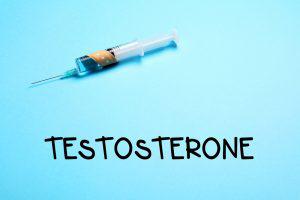
Another way to block testosterone is with drugs.
In a study published in the journal Clinical Genitourinary Cancer, researchers looked at the testosterone levels of men being treated for prostate cancer with an ADT medication after six months.
Of 153 men, 25 were found to have a testosterone level less than 20 ng/dL.
However, this entire theory of testosterone causing prostate cancer has recently come under increasing scrutiny.
The initial study that produced this hypothesis was conducted in the early 1940's by Dr. Charles Huggins and was severely flawed.
Furthermore, young men are jammed-packed with testosterone, yet their levels of prostate cancer are, at best, minuscule.
How could testosterone be linked with prostate cancer when men between their teens and late 20s are fountains of testosterone?
Prostate cancer is a lot more complicated than previously thought as modern science and medicine make breakthroughs in the understanding and treatment of the disease.
Older men, on the other hand, have far lower levels of testosterone circulating in their blood.
Yet their rate of prostate cancer is many times more than young men.
The debate goes on. And there is a conflicting belief in the medical community about testosterone and prostate cancer.
Low Testosterone and Diabetes
If you are a male inflicted with type two diabetes, you probably suffer from low testosterone.
Contact us today to learn about symptoms and treatment.
Are you an over 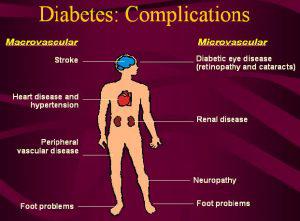 45 male and have type 2 diabetes? Are having trouble with your sex life? The problem could be low testosterone.
45 male and have type 2 diabetes? Are having trouble with your sex life? The problem could be low testosterone.
We can run tests to determine if, in fact, low-T is one of the factors.
We can also check other hormone levels like IGF-1 to see if you are deficient in growth hormone.
There are some tests in an advanced blood panel to determine where you might need medical help and treatment.
Signs of Low Testosterone
Testosterone is the primary male sex hormone, and it's essential for maintaining healthy sexual function, the strength of muscles, mood, and energy level.
If you're experiencing any of the following you should see your doctor:
- A problem of a sexual kind
- You may find yourself falling asleep in the evening
- You may notice a decrease in your muscle size and a shortening in the endurance of exercise
- Have you suddenly felt sad or have lost interest in life, for no rational reason?
If you recognize any of these symptoms, contact us. We will check your testosterone level with a simple blood panel.
Why Do Males With Type 2 Diabetes Suffer From Low-T?
"It's not clear whether one causes the other,” explains Dr. Fenig.
“Research shows that men with low testosterone are more likely to develop type 2 diabetes.
Testosterone increases insulin effect/response, so logically low testosterone can cause an inadequate response to insulin, and diabetes is a disease in which the body does not produce or properly use insulin.
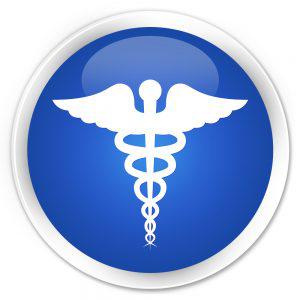
In one study conducted recently, 58 percent of young males were found to have low testosterone levels, and all of these males were obese.
Weight Loss for Men
In addition to considering TRT, the best thing you can do to manage or prevent low testosterone is to control your type 2 diabetes and shed pounds.
If you are found to have low testosterone, our medical clinic can prescribe treatment options including testosterone replacement in a gel, patch, or injection.
12 million American males are diagnosed with diabetes, and most people are unaware of the link between diabetes and low testosterone.
They may be suffering in silence from low energy, constant tiredness, and sexual problems but fail to discuss these issues.
The same recent survey found that sixty percent of the men felt they needed more information to manage their diabetes better.
Low Testosterone Levels in Men are at Epidemic Proportions
The ADA thinks that as many as thirteen million men have low testosterone levels.
Sadly, ninety percent of them go untreated.
DON'T BE ONE OF THEM!
Do you have type two diabetes, are you overweight and over 45? If so you need to be aware of the symptoms of low testosterone. Contact us, and get informed.
More health problems associated with Low-T:
- Complete loss of libido
- Impotence
- Severe ED
- Tender and enlarged breasts
- Osteoporosis
- Depression
- Hot flashes
- Weight gain
- Anemia
- High cholesterol
- Mood changes such as irritability or sadness
- Loss of morning erections or other erection problems
- Low energy and easy fatigue
- Loss of muscle strength or bulk
What You Can Do About It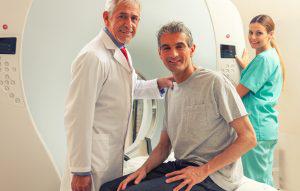
The answer is straightforward: contact us!
Low-T may not be your problem...but then again, perhaps it is.
We can provide professional, precise testing to determine if you do indeed have Low-T and if you would benefit from TRT.
Your treatment will be done professionally and safely.
Contact Us Today For A Free Consultation

- Common Chemicals Found in Plastic May Lower Testosterone Levels [Last Updated On: January 18th, 2024] [Originally Added On: September 29th, 2020]
- There is No “Testosterone Controversy” [Last Updated On: June 30th, 2024] [Originally Added On: September 30th, 2020]
- Is Your Leadership Ability Determined by Your Testosterone and Cortisol Levels? [Last Updated On: January 31st, 2024] [Originally Added On: October 1st, 2020]
- Recent Study Confirms: Testosterone DOES NOT Increase Heart Attack Risk! [Last Updated On: February 10th, 2024] [Originally Added On: October 5th, 2020]
- What You Need to Know About Testosterone Esters [Last Updated On: March 20th, 2024] [Originally Added On: October 7th, 2020]
- Research Makes a Case for Testosterone Replacement Therapy (TRT) [Last Updated On: December 21st, 2023] [Originally Added On: October 8th, 2020]
- Testosterone: How Much Do You Really Know About This Potent Hormone? [Last Updated On: July 16th, 2024] [Originally Added On: October 9th, 2020]
- Testosterone Facts to Consider When Deciding on Testosterone Replacement Therapy [Last Updated On: April 6th, 2024] [Originally Added On: November 21st, 2020]
- Diabetic Men with Low Testosterone Run Higher Risk of Developing Atherosclerosis [Last Updated On: February 9th, 2024] [Originally Added On: November 22nd, 2020]
- Things You Might Not Have Known About Testosterone [Last Updated On: January 26th, 2024] [Originally Added On: November 23rd, 2020]
- Testosterone Propionate [Last Updated On: February 14th, 2022] [Originally Added On: January 17th, 2022]
Word Count: 2238










